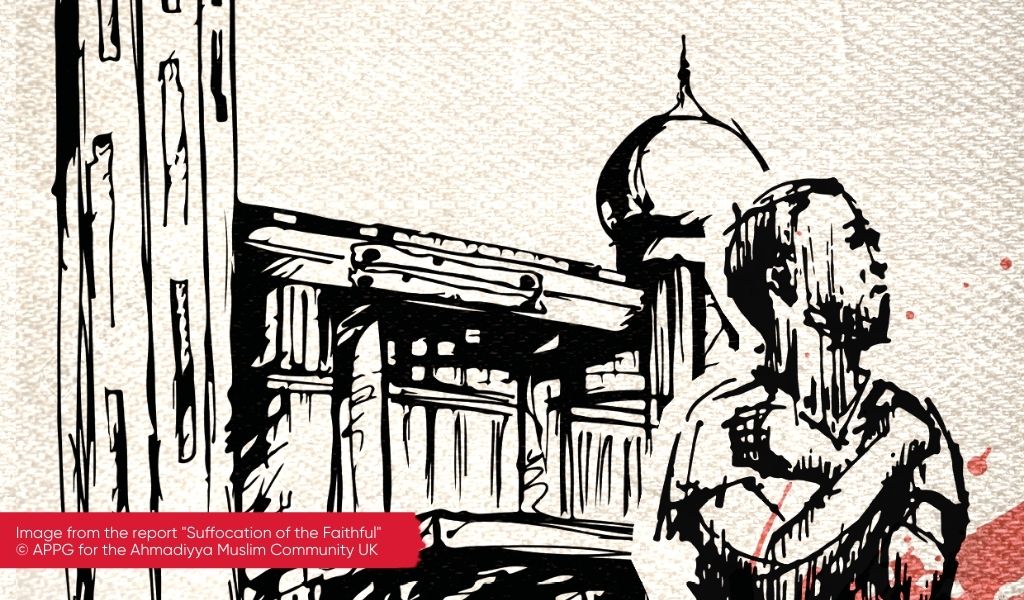By
——
In many countries around the world, religious minorities face discrimination, marginalisation and violence. On the anniversary of Pakistan’s Independence, Siobhain McDonagh MP, Chair of the UK All Party Parliamentary Group for the Ahmadiyya Muslim Community, highlights how Ahmadi Muslims are being relentlessly harassed, murdered on grounds of faith and denied civil rights such as the right to vote.

In these challenging times, governments and politicians are being called to account like never before. While responsive, accountable and fair democratic systems may come in many different shapes and sizes, they all rest on one vital element: being able to vote. Yet religious minorities in many countries around the world face problems obtaining ID cards and exercising their right to vote.
On the occasion of Pakistan’s anniversary of independence and as Chair of the All Party Parliamentary Group for the Ahmadiyya Muslim Community, I will focus here on Ahmadis in Pakistan, although, as has been reported by the IDS-led Coalition for Religious Equality and Inclusive Development (CREID), other groups including Christians, Sikhs, Hindus, atheists and Shia Muslims also face significant concerns in Pakistan on account of their faith/no faith.
New report highlights systematic discrimination against Pakistan’s Ahmadi Muslims
Pakistan’s birth on 14 August 1947 offered hope of a new country with new opportunities and new freedoms. That was Muhammad Ali Jinnah’s vision and as Pakistan’s founding father, he rallied for a state where all were free to believe in any faith.
73 years later, Jinnah’s vision of secularism and equality has been all but disbanded. Pakistan’s concern for civil freedoms has deteriorated and its religious communities have suffered – none more so than the Ahmadiyya Muslim Community.
I recently hosted the launch of the All Party Parliamentary Group for the Ahmadiyya Muslim Community’s first ever report into the persecution of Ahmadi Muslims and other religious communities in Pakistan.
The report noted undeniable evidence of state-sponsored persecution against Ahmadi Muslims, with anti-Ahmadi laws enshrined in the Pakistani constitution and its Penal Code.
Ahmadi Muslims, to this day, are relentlessly harassed, murdered on grounds of faith and denied civil rights such as the right to vote. Insecurity limits the life opportunities of many of the community, living in fear, in secrecy, on edge.
Violence against Ahmadis as well as other groups persecuted on the grounds of their religion, is a constant refrain in Pakistan’s media and social media. It undermines social cohesion and prevents all sections of Pakistan’s society from working together to better their country and to meet the challenge it currently faces in its 73rd year.
I am a firm believer that suffrage is the cornerstone of democracy; where citizens have their rightful say in the governance of their country. Pakistan’s coalescence of state and faith however has resulted in the stark denial of this fundamental civil right for the Ahmadiyya Muslim community – a peaceful, charitable community that was founded in India in the late 19th century by Hazrat Mirza Ghulam Ahmad.
Denial of voting rights for Ahmadi Muslims under General Zia
The denial of voting rights first emerged in 1985, when a system of separate electorates was created by General Zia as part of his ‘Islamisation’ drive. Ironically it was that very same process that enacted federal laws to make it a criminal offence for Ahmadis to self-identify as Muslims and practice their Islamic faith – Zia deemed such acts a crime punishable by imprisonment.
But Zia did not end there. He then barred Ahmadi Muslims from voting as part of the Muslim bloc too, thereby excluding them from the democratic process. This persists to this day and when Pakistani politicians and officials are challenged on the matter, they brush away concerns by suggesting Ahmadi Muslims can vote. However, they fail to mention that to vote, Ahmadi Muslims must either renounce their faith or self-identify as non-Muslims, a Hobson’s Choice that further exposes the state sanctioned denial of the democratic and human rights of Ahmadi Muslims.
Even in Rabwah, the headquarters of Pakistan’s Ahmadiyya Muslim Community where Ahmadi Muslims are a majority, they have no vote in local council elections. This is shameful and a conspicuous violation of Article 2 of the International Covenant on Civil and Political Rights.
The APPG for the Ahmadiyya Muslim Community believes that, to be truly democratic, the Government of Pakistan must end such persecution and unify its electoral lists, so that Ahmadi Muslims have equal rights as citizens of Pakistan to partake in the democratic process. Indeed, the inclusion of all its citizens in electoral processes is central to the advancement of inclusive governance.
The right to suffrage is an unalienable civil right that must not be denied to anyone by anyone and Pakistan is no exception.
In line with our workstream on supporting collaboration across sectors, the Coalition for Religious Equality and Inclusive Development (CREID) welcomes views and evidence which aim to redress religious inequalities and champion inclusive processes of change across both politics and society. We welcome contribution and collaboration from all APPGs working matters of religious equality as well as other areas of discrimination, marginalisation or with a shared geographical interest.
Read original article HERE.
